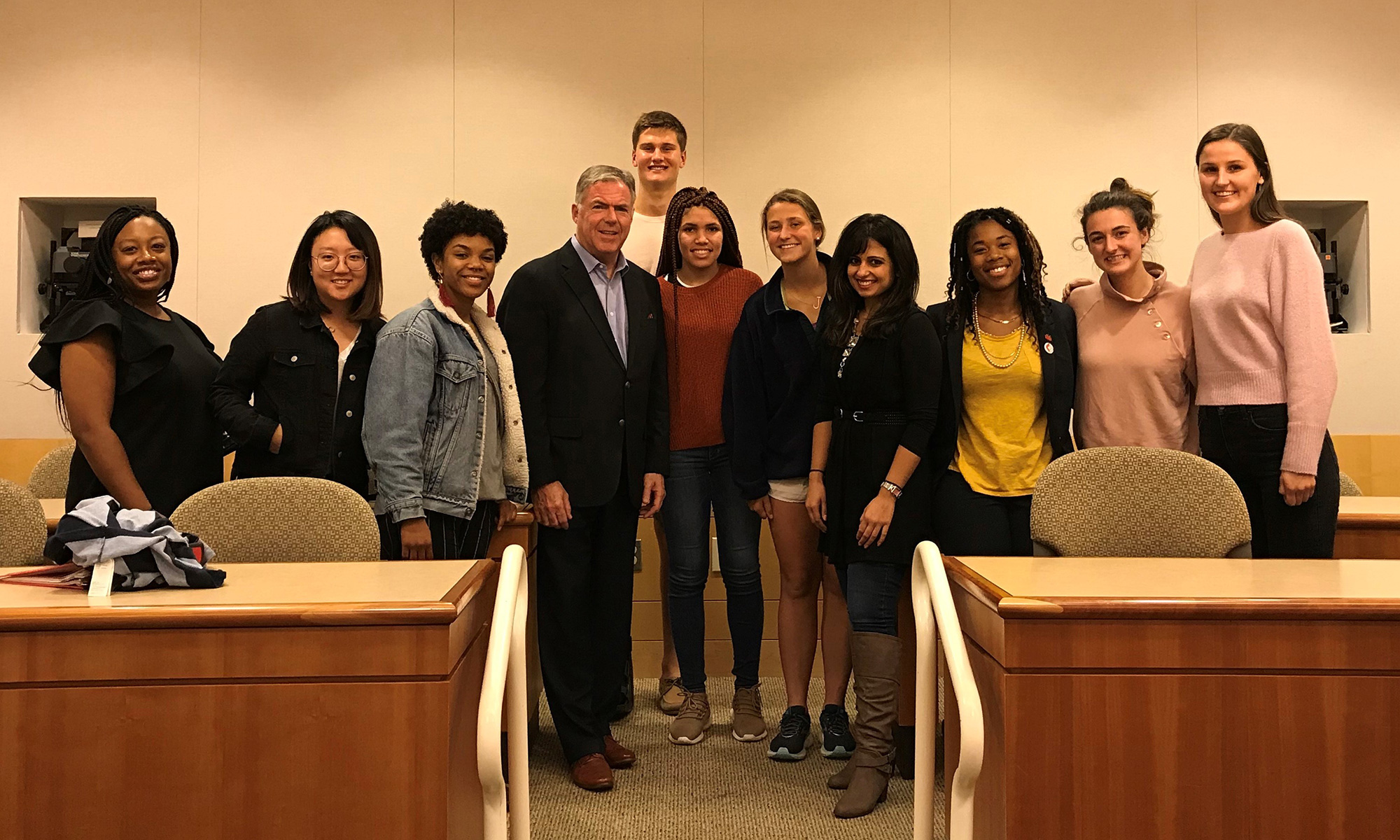Co-Authored by Matthew Harrington ’84, English major and Global Chief Operating Officer, Edelman & Monisha Mukhija ’11, communication major and Research Analyst, Edelman Intelligence & Global Manager, Edelman’s Global Women’s Equality Network (GWEN).
When we think about finding a job, networking has been a buzzword for quite some time. It is true that most jobs are found through networking. However, it’s not as simple as showing up at a professional event to meet people or connecting with someone via LinkedIn for a job offer to fall in your lap.
While LinkedIn and networking events are convenient and provide access to other professionals, building long-lasting, powerful and successful relationships requires tangible work beyond online activity and/or a one-time engagement.
Just like relationships in our personal lives, professional relationships need to be nurtured and strengthened over time for a connection to move beyond the transactional space and grow into a relationship. Here are some tips on how you can build meaningful professional relationships:
Find a common connection: Before reaching out to someone, always research them to learn more about their background/company and identify something you both have in common. Weave that information into your introductory email and/or conversation.
Commonalities can range from attending the same university, working at the same company, connecting with someone who has explored a career path that you’re interested in or made a career pivot you may be looking to make, being from the same town, city or country, or it could relate to passions and hobbies at a more personal level. Finding a common connection is important because it helps establish a level of comfort as you’re warming into a more professional conversation. It creates a lasting impression.
Ask questions and actively engage: When reaching out and connecting with someone, show your eagerness to learn through asking questions – and take it a notch higher by building upon what they’re saying through sharing your own experiences and knowledge. People love to share their experiences and by building on the conversation. You are showing that you’re actively engaged and listening, and it also helps the meeting feel more conversational instead of a Q&A session.
A general rule of thumb is to prepare three-to-five questions as you do your research, based on what you’re hoping to learn and gain. During your call or meeting, chances are you’ll also come up with additional questions that you may not have thought about during preparation – and that is totally fine!
Don’t be afraid to ask for something and follow up: As you are ending a meeting or call with someone, don’t be afraid to ask for help. This can range from requesting to be introduced to someone who may work in a field/department that you’re interested in (even if not in the same company), asking if your connection would be willing to refer you to their company and/or if they’d be willing to look at your resume and provide feedback, or if they would simply be willing to stay in touch and offer ongoing guidance and support. The worst that can happen is they’ll say no, but you’ll be surprised at how many people are eager and willing to help, especially if you’ve established a connection with them.
Also, if you don’t hear back on what you may have discussed, don’t be shy to follow up. It’s easy for people to get busy with their day-to-day and sometimes forget, even if you reinforce your ask/request in a thank you email following your conversation. If enough time has passed (usually 2-3 weeks) and you haven’t received a follow through, feel free to gently follow up.
Think long-term and find opportunities to stay connected: Building relationships takes time and effort, and they don’t always yield results and benefits in the short-term. So, while a conversation or two with someone may not result in an immediate job offer, it is important to continue finding opportunities to stay connected.
Whether it’s writing a simple thank you note to someone after they’ve taken the time to connect with you, sending them a happy holidays greeting, sharing a value-add article or thought as a follow-up to a conversation that you had with them, introducing them to people within your network who could be beneficial to them, providing them an update on your career, or simply reaching out to connect after it’s been a while, making proactive efforts of this sort can help strengthen a connection.
These efforts are particularly important for those who have already vouched for you and provided a referral that may have helped you get a job. It shows interest in the person that is beyond transactional and helps to build relationships that are sustainable, which can yield long-term benefits (like, gaining a mentor, introductions to their professional network, opening up career opportunities, etc.)
Pitch for yourself and always follow through: While it’s totally fine to tap into your parents or friends’ networks to be introduced to and meet professionals you may be interested in connecting with, it reflects well if you proactively reach out and pitch yourself and continue building those relationships on your own. It can send the wrong message when someone’s parents do the networking for them, creating an impression that you can’t sell yourself.
In addition, if you’ve reached out to someone, scheduled a meeting or offered to send over something, always be responsive and follow through in a timely fashion. In fact, following through on your commitments is often more important than taking that first step in meeting someone or suggesting something. It shows that you’re organized, proactive, and action-oriented, which directly reflects on your professionalism and work ethic, and helps set a strong foundation for a lasting and successful professional relationship.
